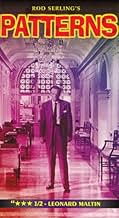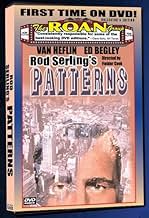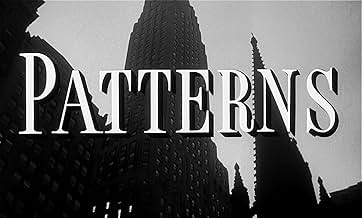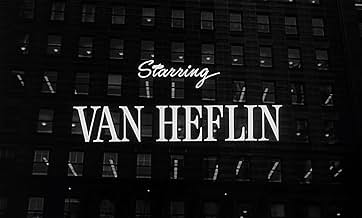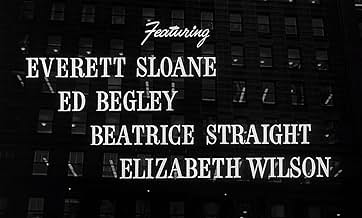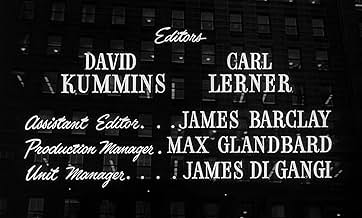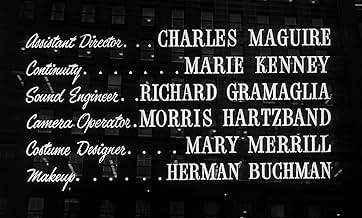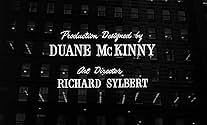When Fred Staples is recruited onto the board of a high-powered New York corporation, he finds his ethics and ambition at odds.When Fred Staples is recruited onto the board of a high-powered New York corporation, he finds his ethics and ambition at odds.When Fred Staples is recruited onto the board of a high-powered New York corporation, he finds his ethics and ambition at odds.
- Nominated for 1 BAFTA Award
- 1 nomination total
- D.J. Vandeventer
- (as Jack Livesy)
Featured reviews
If you're fortunate to find this rarity scheduled, by all means don't miss it.
Heflin plays a young man named Fred Staples, a small-town manager who is brought into a large firm by the President, Ramsey (Sloane). It's apparent to the viewer (and everyone but Staples) that he's been hired to replace one of the vice presidents, Bill Briggs (Begley). Staples admires Briggs and the humanity that he brings to his job, but he's the last of the old firm back when it was run by Ramsey's father, a compassionate man who cared about the workers. This Ramsey only cares about dollars and cents and efficiency. He's determined to force Briggs out.
Back in the '50s, big business movies were all the range, with films like "Women's World" and "Executive Suite" tackling the subject. The interest in the subject was possibly due to all of the postwar expansion in this country. "Patterns" is the best of the lot, realistic in its tone and with tremendous acting. The women are mere accompaniment - wives and secretaries - and certainly reflect the times.
Richard Kiley brought a naivete to the role of Staples that Van Heflin, because he's older, doesn't have, but he's still very effective as an honest, smart and decent man who's ambitious but doesn't like Ramsey's tactics. Ed Begley is sympathetic as a man past his prime who can't let go but whose job and daily battles are killing him. Everett Sloane does a great job as the ruthless Ramsey, who won't allow emotion into his business sense. We get a hint that he's not as unfeeling as he appears, but he's never going to let anyone else see it.
A really strong film, highly recommended.
Ramsey knows no one likes him, but he couldn't care less. He'd rather play to win than play nice. He knows that it's time for nice old boy Bill Briggs (Ed Begley) to go and he's found just the man to take his place in Staples, who'd been managing his plant in Ohio. The only problem is that Staples genuinely likes Briggs and detests Ramsey.
You'll hate Walter Ramsey too, but you'll see that he built his company not merely through intimidation but by being an excellent judge of character. He recognizes that Staples, who seems clueless when it comes to office politics, is immensely talented and actually very ambitious. Ramsey sees that the fact Staples will never like him is really an asset. He doesn't want a groveling yes-man, he needs someone who will fight him.
Of course Briggs also fights with Ramsey, but his punches never land. His arguments are easily brushed aside and only serve to make Ramsey even angrier. Briggs refuses to accept that he's washed up, which reflects either his stubborn nature or his lack of professional vision. In any case, it's a fatal flaw and Ramsey mercilessly carves him up.
This is painful to watch and all your sympathy is with Briggs, but from a business perspective you have to accept that Ramsey is right. Gradually, Staples sees this as well and that Ramsey understands him better than he understands himself. At the end, Fred Staples hates Walter Ramsey more than ever but he can't resist his boss' challenge. And Ramsey knows that though the price was high, he finally has the man he wants as his vice president.
"Patterns" offers many solid performances, especially Sloane's and Heflin's. Ed Begley is hardly my image of a corporate executive (he was much more credible as the cop turned crook in "Odds Against Tomorrow"), but he certainly looks the part of a sick man. Watching Beatrice Straight I couldn't help but recall her role in "Network" and wonder if her Nancy Staples would suffer the same fate in the 1970s. Straight had a rare combination of intelligence and beauty, and it's a shame she made so few films.
"Patterns" is quick (about 85 minutes) because it has to be. Were it any longer Ramsey's bullying of Briggs would be unbearable and the film's real point would be lost.
Today we flatter ourselves when we think that characters like Ramsey went out with the Edsel. It's a different world, but it's still a cruel one. Working women are no longer called "girls" and some may have moved into executive suites, but the corporation imperatives are the same as they were in 1956: know your people, know your product, make money, cut your losses.
None of this was lost on Walter Ramsey. We may hate him, but as much as we hate to admit it, we still need him. That's not the way we like it but that's the way it is.
Except for a brief use of subjective camera, director Cook films in a straightforward manner, letting the strong story carry events. I like the way he sets up the world of big business in the opening shots-- the cathedrals of capital towering over Wall Street pedestrians, the church bells signaling the sanctity of the mission, the subtle pecking-order among the secretaries based on who their boss is. It all smacks of industrious efficiency, revealed later on, however, as a very ruthless efficiency. The upwards shot of Heflin standing in the over-arched hallway tells us right away he's a man big enough to compete in this demanding environment.
Heflin is great as the small-town success suddenly promoted to the big city headquarters. Trouble is he's also brought a down-home sense of ethics, which handicaps his ability to survive the bloody board meetings presided over by CEO Everitt Sloane, aptly described as a human "barracuda". Unlike the other characters, Sloane's Walter Ramsey comes perilously close to a one-note caricature in his cold-hearted drive, salvaged only by a single-minded respect for competency and a desire to encourage full business potential. It's this latter that makes an otherwise implausible ending somewhat believable-- (I'd still like to know if the movie's compromised ending was Serling's original intent).
The cast is outstanding for their skill rather than for their looks, no small development in the glamor-obsessed 50's. Ed Begley's Bill Briggs makes for a tragic figure, an affecting left-over from the world of small business where an owner could address every employee by name. He and small town Heflin hit it off immediately, thereby heightening Heflin's predicament, the film's dramatic centerpiece. That post-war decade didn't provide many big roles for middle-age or plain-looking women. Both Wilson and Straight show how much the talent pool extended beyond the bosomy young things. Watch Wilson pause over the little potted plant that adorns her desk as she quits her job. Should she take it or not. Of course she takes it, because she's loyal not only to the needy Briggs, but to a tiny thing that would otherwise not survive the intense environment. It's a slight character touch like this that makes a movie stand out from the rest.
The key scene in the library is well handled. There, Heflin's wife (Straight) demonstrates her own wifely ambition, routed in typical 50's fashion through the success of her husband. When he hesitates, she insists on grabbing the brass ring, thereby forcing him to face his own suppressed ambition within the Darwinian world of corporate executives. As a result, I'm not sure I buy her sudden willingness at the end to "start over" away from the big house and fancy car. In fact, as good as the script is, there are a number of softening concessions to both people and plot.
Note Sloane's rationale for laying off employees in a distant plant-- By increasing efficiency through layoff, he asserts, new opportunities will eventually open up that will improve everyone's lot down the line. Some such version amounts to textbook theory and no doubt is sometimes true. But I wonder how true it is for millions of laid-off Americans whose good jobs have now been shipped overseas, and whose prospects now don't extend much beyond the local Mac Donald's. How true is it for them. No doubt, in Sloane's book, I'm indulging in rank sentiment and not the hard-headed principles that make capitalism continue to expand (but perhaps, not "grow"). That's the movie's crux and one that continues to press 50 years later. Patterns presents a somewhat hopeful 50's look at the big corporation; I'm not sure that a 21st century view would be quite so hopeful.
Did you know
- TriviaBased on a teleplay by Rod Serling, Patterns (1955). It featured several of the same actors who would appear in the movie, including Everett Sloane and Ed Begley. However, the part of Fred Staples, the lead, was originated by Richard Kiley. Begley's character, Bill Briggs, was called Andy Sloane in the original version. Serling's teleplay won him the first of his six Emmy Awards.
- GoofsThe dialog in the final scenes, starting with Staples' conversation with his wife in a coffee shop near his office, indicate the events take place well into the evening. However, the exterior shot linking this scene with Staples' confrontation with Ramsey in the Ramsey & Company building, as well as the exterior shot that follows the confrontation, were both taken in broad daylight.
- Quotes
Bill Briggs: On our level you don't get fired, you know that. After thirty years of productive work, they can't say to a man like me, "Alright, now get out!" They just can't do that. So what do they do? They create a situation. A situation you can't work in and finally that you can't live in with this tension, abuse. Small humiliations. It all starts out on a scale so subtle, so microscopic that at first you can't really believe it's happening at all. But gradually the thing begins to take shape. The pieces fit together - all the little bits. And it becomes unmistakable. They chip away at your pride, your security until you begin to have doubts, and then fears.
- ConnectionsReferenced in American Masters: Rod Serling: Submitted for Your Approval (1995)
- How long is Patterns?Powered by Alexa
Details
- Release date
- Country of origin
- Official sites
- Language
- Also known as
- El precio del triunfo
- Filming locations
- Pine Street and Nassau Street, Manhattan, New York City, New York, USA(Nancy drops off Fred on his first day at work)
- Production companies
- See more company credits at IMDbPro
- Runtime1 hour 23 minutes
- Color
- Sound mix
Contribute to this page



